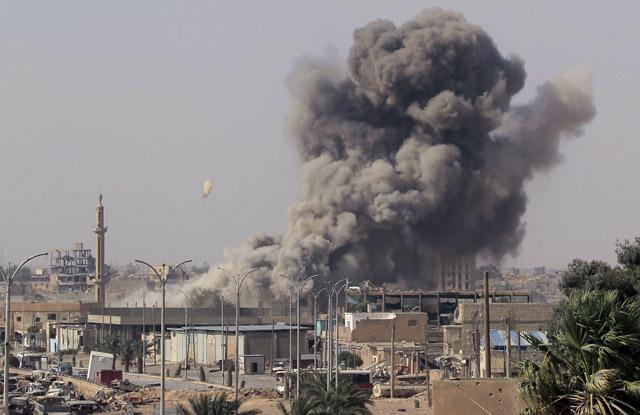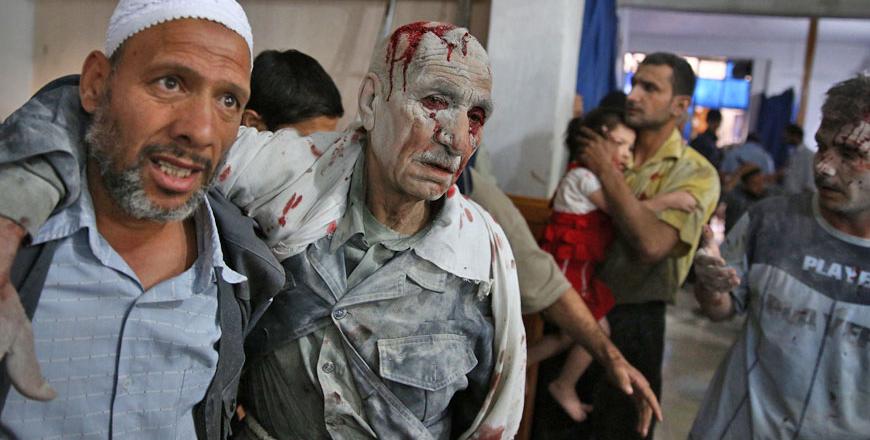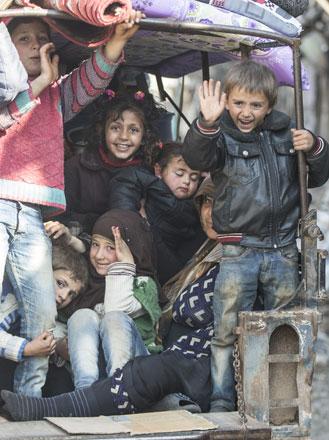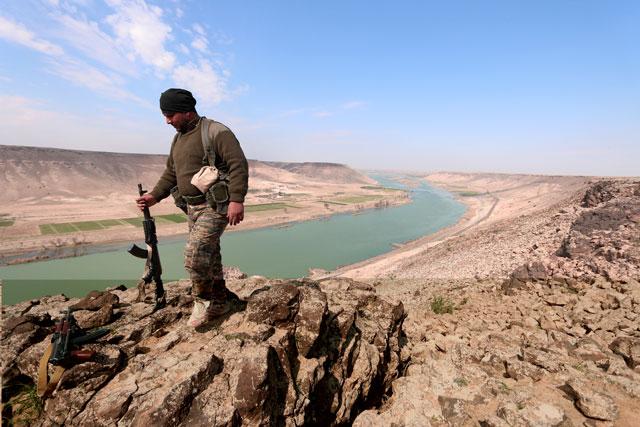You are here
US forces to stay in Syria for decades, say militia allies
By Reuters - Aug 17,2017 - Last updated at Aug 17,2017

Smoke rises after an air strike during fighting between members of the Syrian Democratic Forces and Daesh militants in Raqqa, Syria, on Wednesday (Reuters photo)
AIN ISSA, Syria — Washington's main Syrian ally in the fight against the Daesh terror group says the US military will remain in northern Syria long after the extremists are defeated, predicting enduring ties with the Kurdish-dominated region.
The US-backed Syrian Democratic Forces (SDF), an alliance of militias dominated by the Kurdish YPG, believes the United States has a "strategic interest" in staying on, SDF spokesman Talal Silo told Reuters.
“They have a strategy policy for decades to come. There will be military, economic and political agreements in the long term between the leadership of the northern areas [of Syria] ... and the US administration,” Silo said.
The US-led coalition against Daesh has deployed forces at several locations in northern Syria, including an airbase near the town of Kobani. It has supported the SDF with air strikes, artillery, and special forces on the ground.
Asked about long-term strategy, Col. Ryan Dillon, spokesman for the coalition, referred Reuters to the Pentagon. He said there was “still a lot of fighting to do, even after ISIS [Daesh] has been defeated in Raqqa”.
Daesh remained in strongholds along the Euphrates River Valley, he added, in a reference to its stronghold in Deir Ezzor province southeast of Raqqa.
“Our mission... is to defeat ISIS [Daesh] in designated areas of Iraq and Syria and to set conditions for follow-on operations to increase regional stability,” Dillon said, without elaborating.
Eric Pahon, a Pentagon spokesman, said in Washington: “The Department of Defence does not discuss timelines for future operations. However we remain committed to the destruction of ISIS [Daesh] and preventing its return.”
The SDF and YPG dominate a swathe of northern Syria where Kurdish-led autonomous administrations have emerged since the onset of the Syrian conflict in 2011.
The YPG and its allies hold an uninterrupted 400-km stretch of the Syrian-Turkish border.
The US alliance with the SDF and YPG is a major point of contention with neighbouring Turkey, a US ally. Turkey views the YPG as an extension of the Kurdistan Workers Party (PKK), which has fought a three-decade insurgency in Turkey.
Silo said: “The Americans have strategic interests here after the end of Daesh.”
New bases?
“They [recently] referred to the possibility of securing an area to prepare for a military airport. These are the beginnings — they’re not giving support just to leave. America is not providing all this support for free,” Silo said.
He suggested northern Syria could become a new base for US forces in the region. “Maybe there could be an alternative to their base in Turkey,” he added, referring to the Incirlik Airbase.
The head of the YPG said last month the United States had established seven military bases in areas of northern Syria controlled by the YPG or SDF, including a major airbase near Kobani, a town at the border with Turkey.
The coalition says it does not discuss the location of its forces, citing operational security.
Reuters reporters have seen Blackhawk and Apache military helicopters taking off from a cement factory southeast of Kobani, a Kurdish town on the border with Turkey.
Washington under the new US administration of President Donald Trump started distributing arms to the YPG in March ahead of the final assault on Raqqa city, infuriating Turkey which has been unsuccessfully lobbying Washington to abandon the SDF.
Despite SDF confidence that US forces will stay, there is concern that Washington will not give enough backing to YPG-allied forces and civil councils that control northeast Syria.
“We’re constantly asking them for clear, public political support,” Silo said. He said the US State Department held its first public meeting with SDF officials this month.
“At the moment there are no meetings being held for a real discussion of Syria’s future. There are initiatives for developing political support for our forces, but we hope this will be bigger,” he said.
Related Articles
BEIRUT — Daesh militants re-entered Syria’s Tal Abyad Tuesday, seizing a district from the Kurdish forces who captured the border town in a
BEIRUT — US-backed Syrian militias cut the last main road out of Daesh-held Raqqa on Monday, severing the highway between the group's de fac
BEIRUT — US-backed Syrian forces said on Thursday they were closing in on Daesh-held Raqqa and expected to reach the city outskirts in a few



















